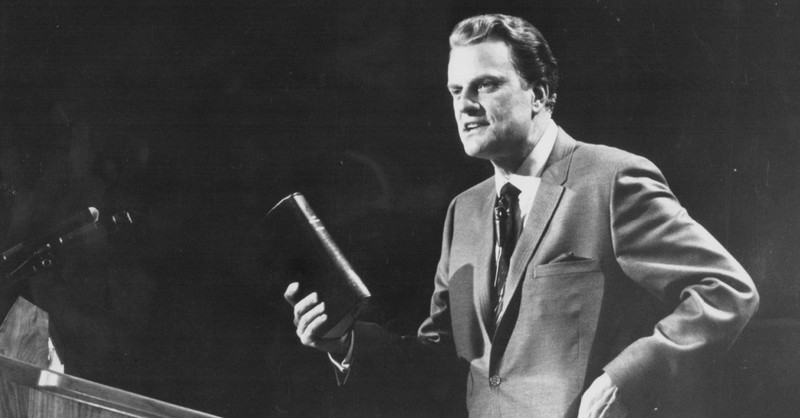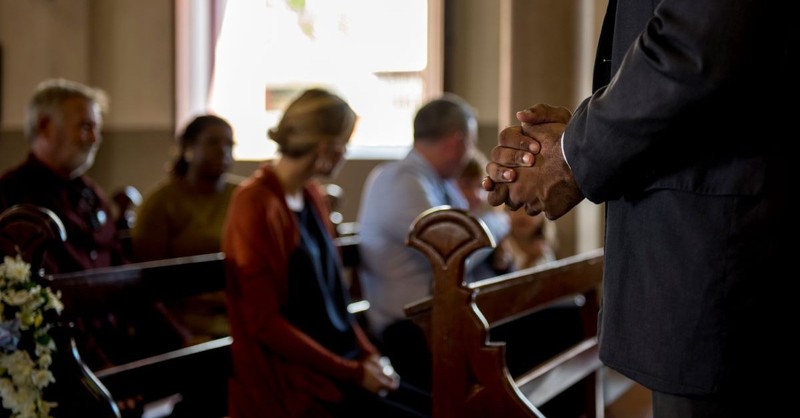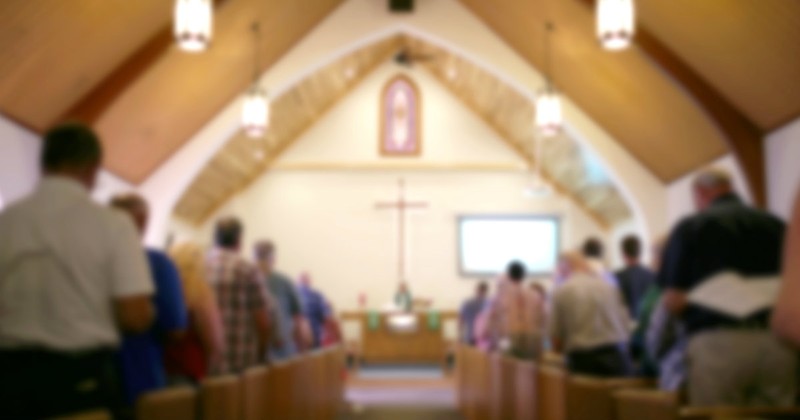The term “evangelical” has become a general term for Christians despite some differing opinions on just what that means.
Many experts have weighed in on just what evangelism is and is not, and more and more the word is being used in political and sociological terms. Despite the complexity of the term, it’s clear the word may mean different things to different people.
Here are 10 things you need to know about evangelicals.
Photo courtesy: ©Getty Images/Ehrlif

1. There is some debate on when evangelicalism started, but most agree that its roots are in the 18th century.
According to author Catherine Brekus, eighteenth century Protestants gradually created “a new kind of faith” that we now know as evangelicalism. But even before the 18th century, Protestant reformers used the word to describe their faith. In the 18th century, “evangelicalism” largely described Christians who emphasized a personal relationship with God, the practice of being born again, and a call to spread God’s message worldwide.
During this time, Christians saw the emergence of scholars and preachers that would become leaders of the evangelical movement— many whose work is still preached on today. Those leaders included Jonathan Edwards, John Wesley and later on, Charles Spurgeon and Dwight L. Moody.
Further Reading: Karen Swallow Prior Interview on the Evangelical Imagination
Photo courtesy: Nagesh Badu/Unsplash

2. The term "evangelical" comes from the Greek word for “gospel.”
The word comes from the Greek word, “evangelion,” which means good news or gospel. Historians believe that William Tyndale, a leader in the Protestant Reformation, was the first to record the English word “evangelical.” In 1531, Tyndale wrote in a commentary on the book of John: "He exhorteth them to proceed constantly in the evangelical truth."
Later, the word was used by Catholic Sir Thomas More to describe Tyndale and his “evangelical brother (Robert) Barnes.” Barnes was an English reformer.
According to the Institute for the Study of American Evangelicals at Wheaton College, Martin Luther first used the Latinized form of the word evangelium to describe the non-Catholic churches that came out of the Protestant Reformation.
Further Reading: What Is Evangelical Christianity?
Photo courtesy: ©GettyImages/pcess609

3. "Evangelical" is sometimes used as an all-encompassing term for Christians.
Even Billy Graham, who was heralded as a leader in the rise of evangelicalism, said once that he was unsure how to define an evangelical Christian. He said, “Actually, that’s a question I’d like to ask somebody too.”
The word typically describes several denominations, churches and organizations and there is no single head of this “religion.” Even in its complex history, evangelical was used as a general term. During the Great Awakening, evangelicalism was a synonym for revivalism, a movement of Christianity led by pastors such as Jonathan Edwards.
Today, the word is used to describe the religious right, or in some cases, all Christians, or even the conservative masses.
Further Reading: 10 Things You Need to Know about Billy Graham
Photo courtesy: ©Getty Images/Keystone/Stringer

4. There are some main characteristics to evangelicalism.
The major tenet of evangelicalism is the belief in being “born again” or conversion. Since the beginning of the movement, pastors and teachers have taught that Christians must repent and convert. Just how that conversion happens differs among Protestant denominations, but most believe in a “new birth.”
Another major belief among evangelicals is the belief in spreading the gospel message. History has most recently seen that in the movement of Billy Graham, whose large gatherings inspired millions to seek God. In today’s evangelical churches, there is often a significant emphasis on spreading the gospel through mission work globally and domestically.
Further Reading: What Is Evangelicalism?
Photo courtesy: ©Getty Images/Pamela D McAdams

5. Evangelicals believe in a rapture and end times.
Often inspired by Tim LaHaye’s and Jerry B. Jenkins’ Left Behind series, evangelicals do believe in the return of Christ via the rapture. Just how that return will be and what it will mean to the world differs among evangelicals, but most believe in the second coming of Christ and that he will come to “rapture” believers to heaven.
Following this rapture, non-believers will spend seven years of tribulation on earth before Christ returns again and he will defeat his enemies and reign over earth.
All Christians do not agree on the details of the rapture and the end times, and interpretations have varied among scholars and experts. The Billy Graham Evangelistic Association says, “What is important is that all Christians hold in common that Christ will ultimately return bodily, visibly, and gloriously to reign and rule with His resurrected and transformed saints forever and ever. The details of this great event will be made known in God’s own time.”
Further Reading: What Does the Bible Really Say about the Rapture?
Photo Credit: © iStock/Getty Images Plus/Design Pics

6. Another core belief includes a high regard for the Bible.
Evangelical Christians believe in the Bible as God’s word and that it is the final authority for Christians. The National Association of Evangelicals, an organization of some 45,000 churches, says in its statement of faith: “We believe the Bible to be the inspired, the only infallible, authoritative Word of God.”
In response, critics have questioned the Bible’s inerrancy, but some evangelicals have pointed out, among other arguments, that because God cannot err, the Bible cannot err. However, interpretation of the Bible varies among evangelicals. Some take a literal approach to God’s Word and others interpret the Word differently. “Interpretation of the Bible is a distinct subject — as in how do you interpret the actual words of Scripture?” says author and professor Norman Geisler.
Further Reading: What Does it Mean That the Bible Is Divinely Inspired?
Photo courtesy: Priscilla du Preez/Unsplash

7. Evangelicals are not all fundamentalists.
Most agree that evangelicals and fundamentalists are different or describe different things. Evangelicals are a broad group of Christians, while fundamentalists are also Christians, but a division of Christianity in itself. They are mostly politically conservative and take a literal interpretation of the bible. Steve Waldman, editor in chief of Beliefnet, says, “Evangelicals have a much wider range of political views. A lot of them are conservatives, but not all of them.”
There is an agreement between evangelicals and fundamentalists on some subjects, such as the belief that the Bible is inerrant as well as the need for conversion.
Further Reading: What Is Christian Fundamentalism? History and Meaning
Photo courtesy: ©GettyImages/Rawpixel

8. Some say Catholics cannot be described as evangelicals.
Because the term is a Protestant word and the movement arose out of disagreement with the Catholic church, some believe that Catholics cannot be described as evangelicals. Some experts have said that Catholics are not evangelical because, while they accept the authority of the Bible, they also give authority to the church and the pope.
Today, there is some overlap between Catholicism and evangelism, so some believe that a Catholic can, however, be an evangelical. This is called “evangelical Catholic.” According to The Washington Post, “Pollsters and sociologists note that in the 1990s and early 2000s, conservative white Catholics in particular and white evangelicals began making alliances over shared concerns, primarily traditional marriage, abortion, and legal religious protections.”
Further Reading: Catholicism: History, Tradition, & Beliefs of the Catholic Church
Photo courtesy: ©Getty Images/Giulio Origlia/Stringer

9. Studies are mixed on what groups are evangelical.
According to a 2014 study from the Pew Research Center, about 76 percent of evangelical Protestants are white. About 11 percent are Latino, and six percent are black. Two percent identify as Asian and five percent identify as mixed.
Another Gallup poll, however, showed that 61 percent of non-Hispanic blacks identified themselves as born-again or evangelical. Forty-four percent of Hispanics said the same, and 38 percent of non-Hispanic whites also identified as born-again or evangelical.
Further Reading: Evangelicals: Past and Present
Photo courtesy: ©Getty-ChristinLola

10. There have been some impactful evangelicals.
While there is disagreement about the term evangelical, there are a few people that have been lauded as significantly influential to the faith. As noted above, one of those people is the late Billy Graham, who became one of the most prominent evangelicals of all time.
Among others include Joyce Meyer, who launched a “feminine side of evangelism” with her videos and books; James Dobson, founder of Focus on the Family, and Rick Warren, author of The Purpose Driven Life. Many evangelical leaders have faced criticism for their success, wealth, or beliefs, but these Christians have largely found a voice for Christianity.
Further Reading: What Is an Evangelical?
This article is part of our Denomination Series listing historical facts and theological information about different factions within and from the Christian religion. We provide these articles to help you understand the distinctions between denominations including origin, leadership, doctrine, and beliefs. Explore the various characteristics of different denominations from our list below!
Catholic Church: History, Tradition & Beliefs, Jehovah's Witnesses & Their Beliefs, The Church of Latter Day Saints & Their Beliefs, Baptist Church: History & Beliefs, Presbyterians: History & Beliefs, Mennonites & Their Beliefs, United Methodist Church: History & Beliefs, Seventh-Day Adventists & Their Beliefs
The Pentecostal Church: History & Beliefs, Lutheran History & Beliefs.
Photo courtesy: ©Getty Images/Microgen
Publication date: June 15, 2018




